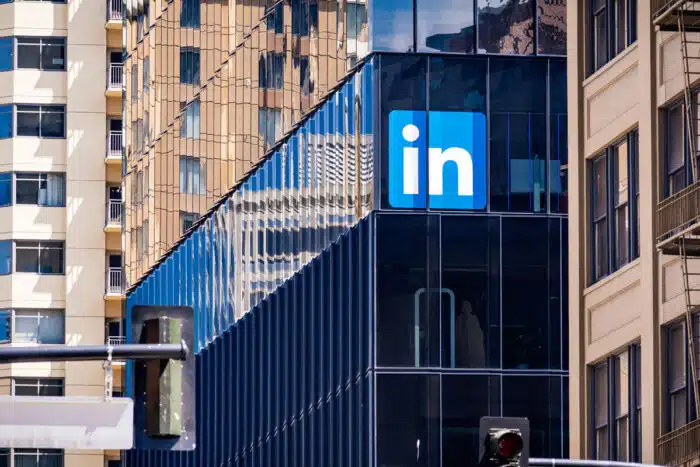
LinkedIn experiments overview:
- Who: LinkedIn ran an experiment from between 2015 and 2019 on its “People You May Know” algorithm, according to a study published by researchers from LinkedIn, Stanford, M.I.T., and Harvard Business School.
- Why: The study found that LinkedIn users with weaker social ties had a twice-as-good chance at securing employment through the platform than those with stronger social ties.
- Where: LinkedIn is used by consumers nationwide.
Business networking platform LinkedIn conducted experiments on more than 20 million of its users over a course of more than five years that may have impacted their job opportunities, according to a new study.
LinkedIn ran its experiments — which were intended to improve the platform — through its “People You May Know” algorithm, a feature that recommends new connections to its users, according to a study conducted by researchers at LinkedIn, Stanford, M.I.T, and Harvard Business School.
The experiments were conducted on users worldwide from between 2015 and 2019 and worked by randomizing the amount of strong and weak connections its People You May Know algorithm would suggest.
LinkedIn never informed its users that it was running the algorithmic experiments, however, running large-scale experiments in order to improve a platform is commonly done amongst tech companies, reports The New York Times.
Tech giants such as LinkedIn reportedly often run experiments as a way to help improve the consumer experience by figuring out what keeps them engaged with a platform, which in turn helps them monetize it through advertising and membership fees.
LinkedIn discovers users with weaker social ties have better chance at securing employment through its platform
LinkedIn discovered through its experiment, meanwhile, that users who had relatively weak social ties actually had twice as good of a chance at finding employment through the platform than those with stronger social ties.
The company has said that it acted in accordance with its user agreement, privacy policy, and member settings while running the experiment, while stating it used the most up-to-date and “non-invasive” social science techniques, reports The New York Times.
Experts have expressed concern over long-running experiments like the one recently conducted by LinkedIn, reports the New York Times, which says questions have been raised about a potential transparency and research oversight.
A class action lawsuit was filed against LinkedIn in August by a user claiming the company violated Oregon law by allegedly not disclosing the automatic renewal payment system for a LinkedIn Premium subscription.
Have you used LinkedIn to try and find employment? Let us know in the comments!
Don’t Miss Out!
Check out our list of Class Action Lawsuits and Class Action Settlements you may qualify to join!
Read About More Class Action Lawsuits & Class Action Settlements:















11 thoughts onLinkedIn ‘experiments’ could have affected users’ job opportunities
Please add me